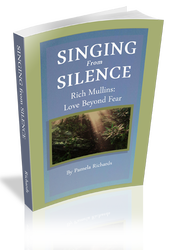A: As someone who knew Richard and his story personally, I find there are gaps in what is generally known about him. My writing is designed to offer valid material that is not found elsewhere for those who are seeking answers to questions not otherwise addressed. I respect the privacy of individuals who are a part of Richard's story and choose not to be identified, so I focus on my own experiences in Singing from Silence.
Students of history are not surprised to find that there are differing accounts of Richard's life. Singing from Silence, written by someone who knew Richard personally, is considered a primary source. The following are instructions offered to students of history when looking at primary sources:
'How does this source compare to other primary sources? Have you read other sources like this one? What did they say? Does the account in this source seem to mesh with those, or does it depart dramatically? Remember that if your source doesn't say exactly what the other sources say, it may still be entirely truthful. It could be that the other sources were wrong. It could also be that all of the authors of your sources told the truth as they saw it, but that their own individual perspectives gave them different views and therefore different accounts. It may also be that the author of your source had a unique experience that wasn't like most people's experiences, but it happened that way just the same. For example, some people remained very wealthy during the Great Depression--they were not in the majority, to be sure, but their stories are still true and can offer valuable insights into the diversity of experiences during that era in American history. Consider all of the possible reasons why this source may differ from other primary sources before you decide to reject any of your sources as "untrue" or "useless."'

 RSS Feed
RSS Feed
